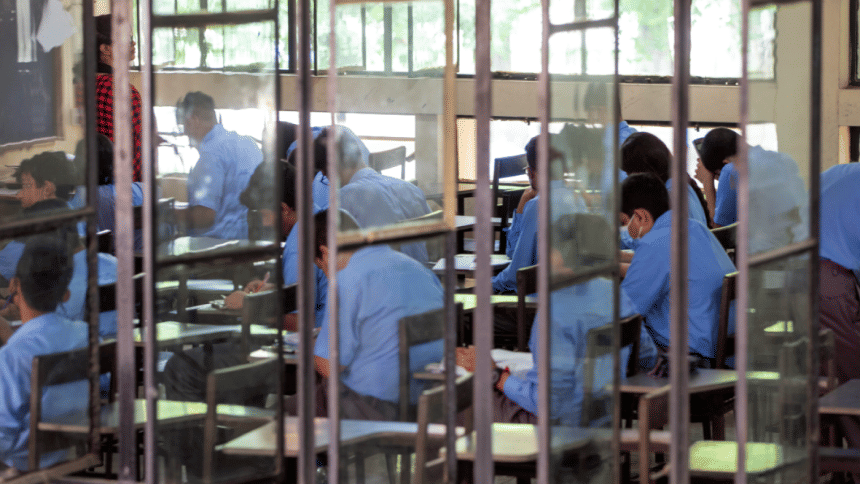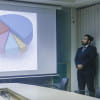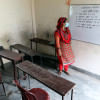Should national curriculum teachers rethink how they guide college students?

Every national curriculum student undergoes the ordeal of board exams, but college is a unique sense of agony since we are expected to simultaneously prepare for both HSC exams and university admission tests, in under two years. Teachers are supposed to play the most significant roles in helping us follow through on this exhausting dichotomous preparation, however, they often fail to do so.
HSC exams are a stepping stone to public university admission tests. Preparing for HSC exams covers the basics but preparing for admissions is an elaborate, tactical process. Students need to be committed from the very beginning.
At many colleges, teachers skip teaching topics that are unlikely to appear in board exams, even if they are very relevant for admission tests, because they think students are going to learn those during their admission phase anyway. In that phase, however, you're buried under loads of relatively newer topics to study and it becomes difficult to pay attention to skipped lessons that have been overdue for two years.
Some teachers in college emphasise elaborating answers, even when they are beside the point, to adhere to the board's biased marking system. From writing 15 pages of essays, overdone creative questions answers to purposefully describing mathematical processes that could've been solved in four lines, we have done it all. Encouraging this in class leaves students aiming to study in public institutions unprepared for what they can expect from admission tests.
Setting aside the fairness of it all, admission exams test a student's ability to solve problems in the time allotted and their ability to perform well under pressure, not their ability to elongate answers.
Truth be told, teachers often take little initiative in classrooms to point out strategies or good-to-know advice for admission tests. Students are forced to turn to private tuitions or coaching for guidance. Rather than solely fixating on board exam patterns, teachers, after having taught traditional methods, should teach time-saving, effective tactical approaches and shortcuts to answering questions. The board committee should also reassess their approved assessment criteria.
Teaching methods currently are often too reliant on test papers as teaching material. Test papers are supposed to give students an idea of how board questions work, but they are often unreliable because of the inaccuracies in the published answers. Teachers and students, thus, scramble to finish solving test papers in the final days leading up to HSC.
Once HSC exams are over with, admission test preparations force students to deconstruct the approach they have honed throughout the past two years, to create and adopt completely new ones within the span of only three to four months.
If teachers provide suggestions during class on balancing preparations and guide aspiring students from the very beginning of college, keeping this dichotomy in mind, it would alleviate unnecessary pressure and hardship on students.
Nuzha forgives people for pronouncing her name wrong and wallows in books and anxiety. Remind her to take it easy at [email protected]

 For all latest news, follow The Daily Star's Google News channel.
For all latest news, follow The Daily Star's Google News channel. 









Comments